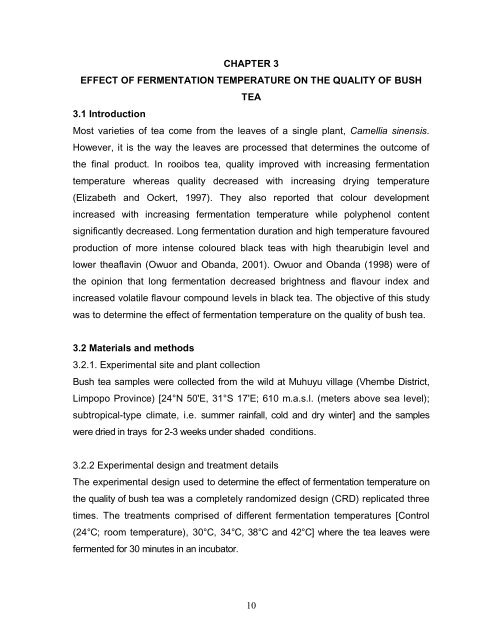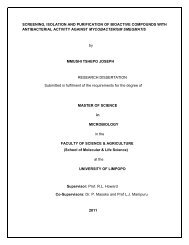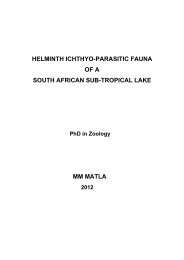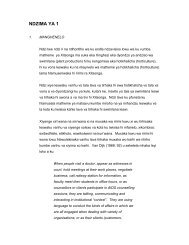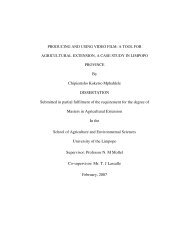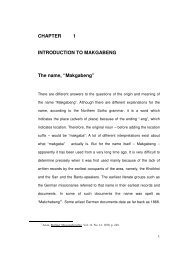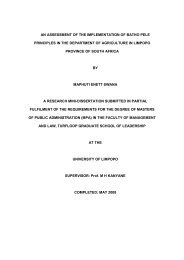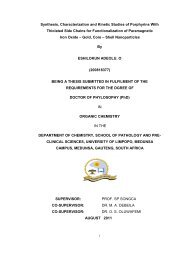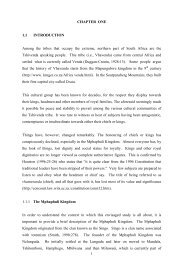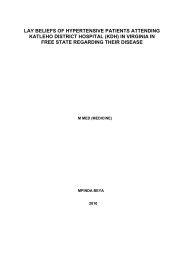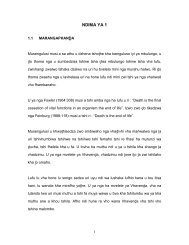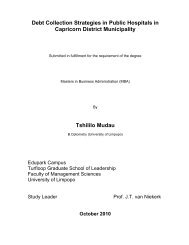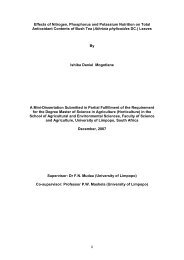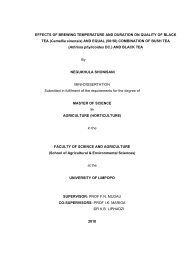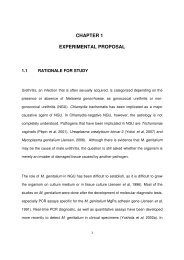Hlahla LN Mini-Dissertation.pdf - University of Limpopo Institutional ...
Hlahla LN Mini-Dissertation.pdf - University of Limpopo Institutional ...
Hlahla LN Mini-Dissertation.pdf - University of Limpopo Institutional ...
Create successful ePaper yourself
Turn your PDF publications into a flip-book with our unique Google optimized e-Paper software.
CHAPTER 3<br />
EFFECT OF FERMENTATION TEMPERATURE ON THE QUALITY OF BUSH<br />
3.1 Introduction<br />
TEA<br />
Most varieties <strong>of</strong> tea come from the leaves <strong>of</strong> a single plant, Camellia sinensis.<br />
However, it is the way the leaves are processed that determines the outcome <strong>of</strong><br />
the final product. In rooibos tea, quality improved with increasing fermentation<br />
temperature whereas quality decreased with increasing drying temperature<br />
(Elizabeth and Ockert, 1997). They also reported that colour development<br />
increased with increasing fermentation temperature while polyphenol content<br />
significantly decreased. Long fermentation duration and high temperature favoured<br />
production <strong>of</strong> more intense coloured black teas with high thearubigin level and<br />
lower theaflavin (Owuor and Obanda, 2001). Owuor and Obanda (1998) were <strong>of</strong><br />
the opinion that long fermentation decreased brightness and flavour index and<br />
increased volatile flavour compound levels in black tea. The objective <strong>of</strong> this study<br />
was to determine the effect <strong>of</strong> fermentation temperature on the quality <strong>of</strong> bush tea.<br />
3.2 Materials and methods<br />
3.2.1. Experimental site and plant collection<br />
Bush tea samples were collected from the wild at Muhuyu village (Vhembe District,<br />
<strong>Limpopo</strong> Province) [24°N 50'E, 31°S 17'E; 610 m.a.s.l. (meters above sea level);<br />
subtropical-type climate, i.e. summer rainfall, cold and dry winter] and the samples<br />
were dried in trays for 2-3 weeks under shaded conditions.<br />
3.2.2 Experimental design and treatment details<br />
The experimental design used to determine the effect <strong>of</strong> fermentation temperature on<br />
the quality <strong>of</strong> bush tea was a completely randomized design (CRD) replicated three<br />
times. The treatments comprised <strong>of</strong> different fermentation temperatures [Control<br />
(24°C; room temperature), 30°C, 34°C, 38°C and 42°C] where the tea leaves were<br />
fermented for 30 minutes in an incubator.<br />
10


